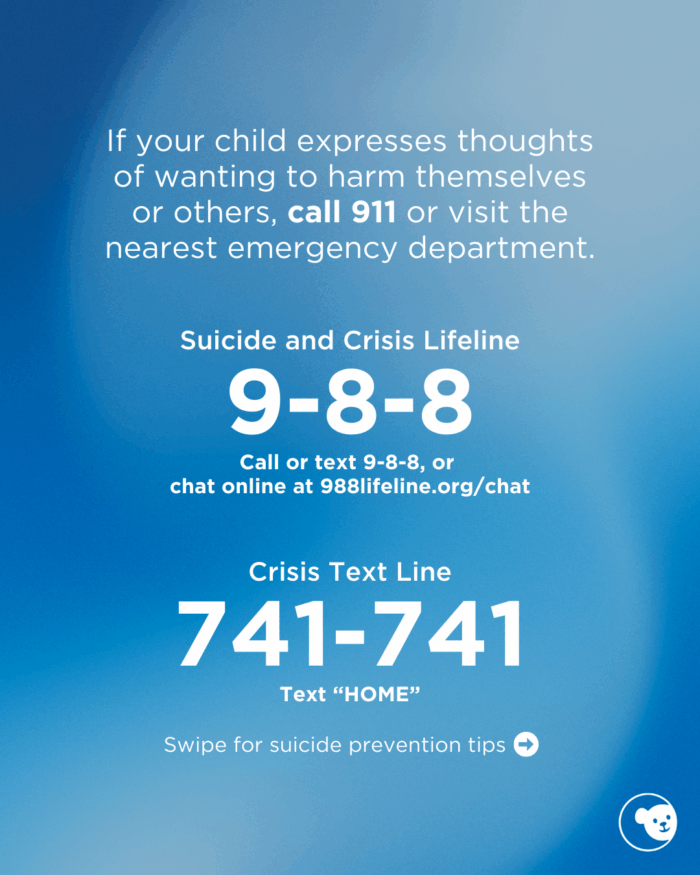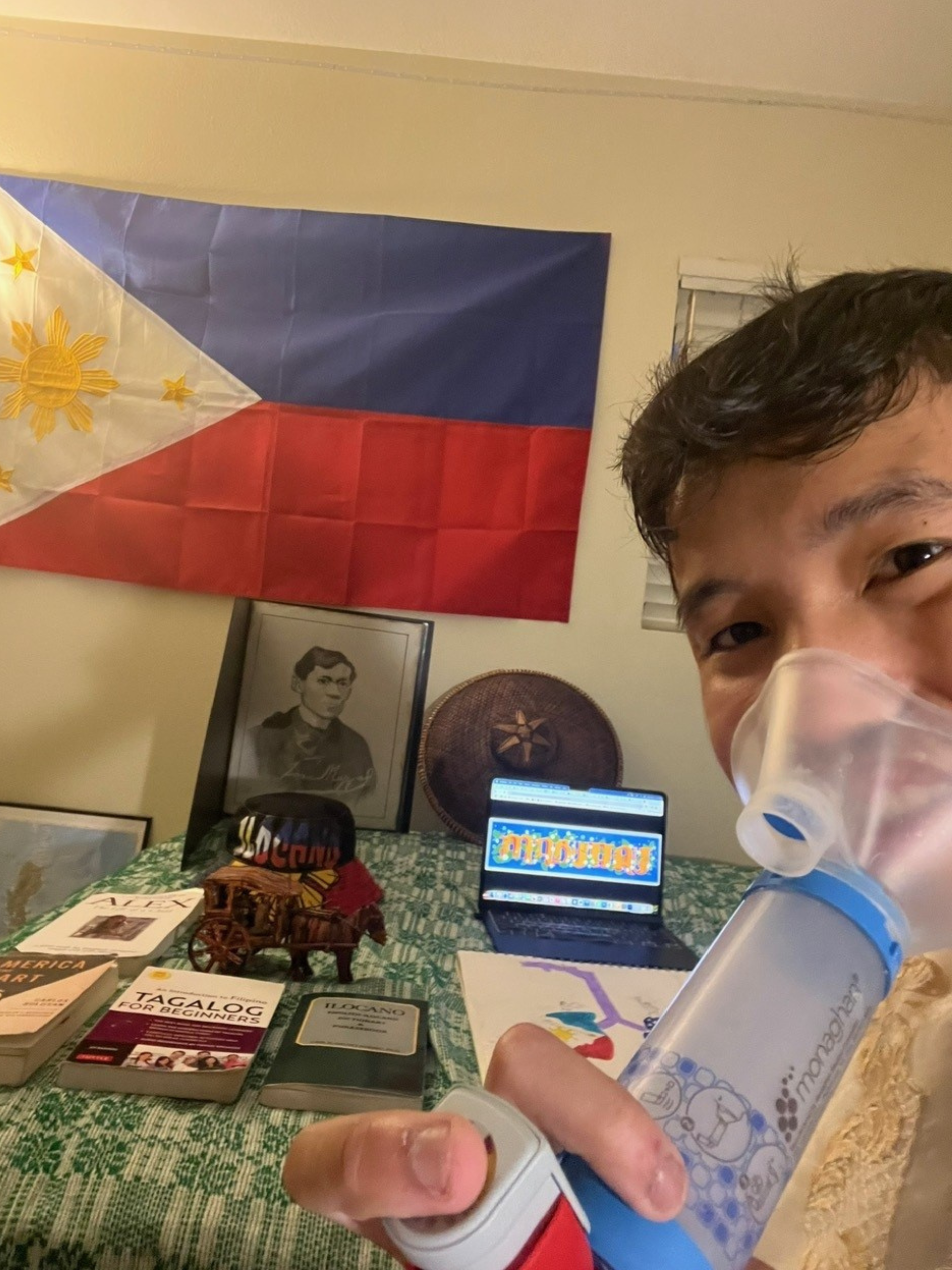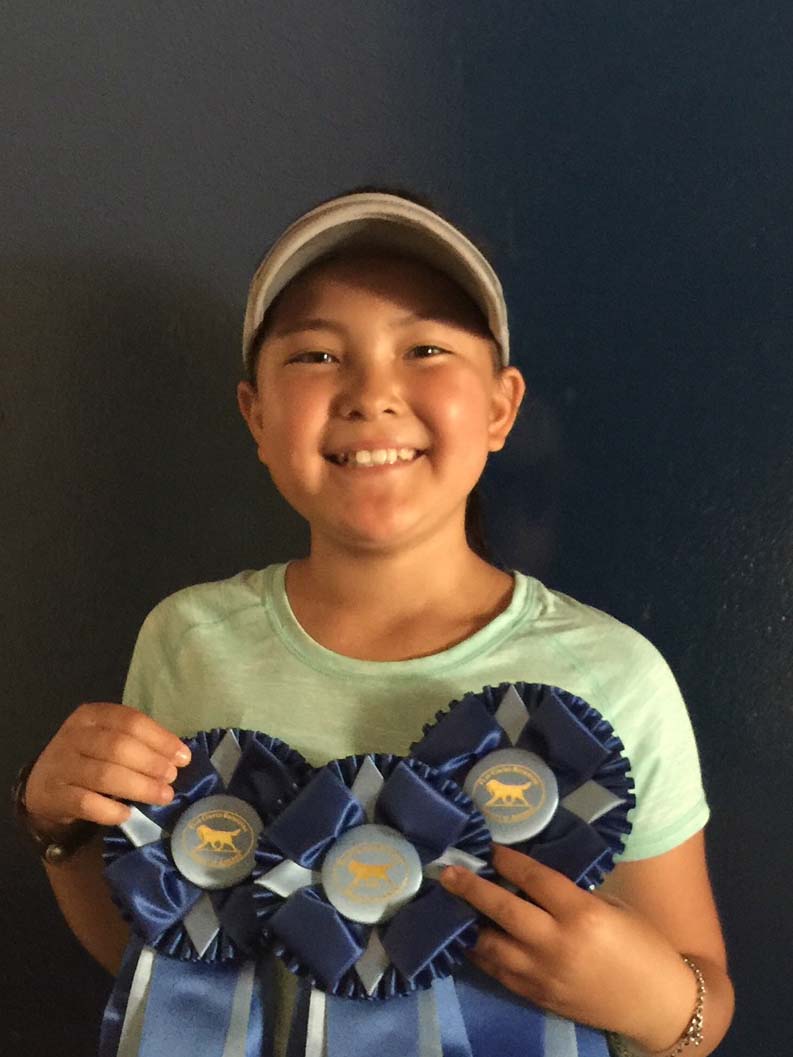MENTAL HEALTH GUIDE
Coping with Chronic Illness
A chronic illness is a physical condition that lasts more than 12 months and impacts day-to-day functioning (e.g., asthma, diabetes). It is estimated that between 20-40% of kids and teens in the US have at least one type of chronic illness. The stress related to a child having a chronic illness can impact the whole family. Kids with illnesses may worry about their future. Parents of sick kids can feel overwhelmed with their changing roles, and siblings can feel left out or scared. It is common for families to grieve the security they felt before a chronic illness diagnosis.
Crisis Resources
If your child expresses thoughts of wanting to harm themselves or others, call 9-1-1 or visit the nearest emergency department.
988 Suicide and Crisis Lifeline:
Call 9-8-8
Text any message to 9-8-8
Chat online at 988lifeline.org/chat
Crisis Text Line:
Text “HOME” to 741741
Save for later
Download, print or share on social media.

External Resources
ARCH National Respite Network
archrespite.org
Center for Parent Information and Resources
www.parentcenterhub.org/resourcelibrary
Starlight
www.starlight.org
American Academy of Pediatrics
Chronic Conditions – HealthyChildren.org
Center for Chronic Illness www.thecenterforchronicillness.org
Chronic Health Problems in Children, Merck Manual
www.merckmanuals.com
Learn more about CHOC’s pediatric mental health services
At CHOC, we specialize in providing a full spectrum of pediatric mental healthcare, including inpatient, intensive outpatient and outpatient program services.
Get 24/7 advice from CHOC
Coping with chronic illness: An overview
Physical health and mental health are related. Chronic sickness or pain can cause symptoms of anxiety and/or depression in the child and their family. Mental health can also affect our physical health directly. For example, when we feel overwhelmed, sad, worried or stressed, our minds tend to pay more attention to physical discomfort. These feeligns can also impact our motivation to take care of ourselves. It is common for kids to feel new challenges related to their chronic illness during developmental transitions, such as entering kindergarten, starting puberty or going to college.
How do families cope with a chronic illness?
- Some families find support through illness groups, camps, advocacy programs or friends, while others choose to keep it more private.
- Some families like to learn as much information as possible, while others may want their medical team to manage their medical information.
- Some families find that healthy habits such as exercise, eating nutritious foods and stress relief activities like yoga or meditation help them to manage both stress and symptoms of a chronic illness.
What are some signs that my family is not coping well and may need more support?
- Your child has sadness, anger or worry that begins to interfere with their ability to go to school, take care of their health, keep healthy relationships with family and friends or enjoy things.
- Your child has physical symptoms of stress such as changes in sleep, appetite or energy level.
- Your child has unexplained aches and pains.
- Your child’s grades are slipping or a teacher or coach expresses concern.
- Your family is arguing more often and you are not feeling as close.
- Your child and/or family are having difficulties meeting your health goals, such as following your medical plan or making it to appointments.
When should I seek professional help?
- A family member — including the sick child or their parents or siblings — is having mood or anxiety symptoms almost every day for longer than two weeks (for further information, see our mental health guides on Anxiety and Depression).
- Symptoms are not getting better with time or with known support and are interfering with their daily routine and well-being.
Remember:
- Don’t wait until symptoms become overwhelming. No one is born knowing how to cope when a child has a chronic illness. It is ok to need outside support.
- If you or a family member experiences thoughts of self-harm or harming others, call 9-1-1, call 9-8-8 or go to the nearest emergency room.


Learn more about CHOC’s Pediatric Mental Health Services
CHOC Hospital was named one of the nation’s best children’s hospitals by U.S. News & World Report in its 2024-25 Best Children’s Hospitals rankings and ranked in the behavioral health specialty.

Chronic illness coping tips for parents and caregivers
Parenting a child with a chronic illness can be challenging for the whole family. Feelings of worry, sadness and anger are often paired with medical appointments, procedures and daily care. Illness can disrupt family routines and lead to greater conflicts between family members. Children look to their parents to know how to feel and behave, which gives parents and caregivers a chance to model healthy coping to their children.
Don’t be afraid to talk about the illness or related treatments
Children need to process what happened and figure out how it fits into their life as they grow up.
Children understand and process information about their condition in different ways depending on their age. As children grow older, it is important to check their understanding and answer their questions in simple, clear terms.
Toddlers and preschoolers need simple, clear explanations (“You need to take your medicine to stay healthy and strong”). For children in kindergarten and early school age, it can be helpful to use picture books, dolls and stuffed animals to explain their condition to them. Starting in pre-adolescence, kids need more detailed explanations.
Children sometimes think they developed their condition because they did something wrong or bad. Reassuring your child that they did not cause their diagnosis can be helpful at all ages.
Use tools such as books and websites created for small children to help them understand what is happening.
Listen and validate your child’s concerns and experiences
Let your child lead the conversation. Let your child ease into asking questions about their health or long-term effects. It’s ok to say “I don’t know” if you don’t know the answer.
If your child brings up concerns about bullying, listen and validate their feelings. Let them know how much you appreciate them telling you about it and that you will talk to other adults involved to try to make it stop. For additional information and helpful tips about bullying, see our mental health Bullying guide.
When your child is feeling burnt out from their chronic illness, listen to their concerns, validate their feelings and provide support.
Help your child cope
Children’s thoughts and feelings about their chronic illness can change over time. You can help your child cope by listening, providing distraction through highly enjoyable activities, getting active and encouraging social activities with friends and family.
It can help to walk through different scenarios verbally (e.g. creating a story about the diagnosis and related medical treatments and cares) and behaviorally (e.g. visiting the medical office or hospital days or weeks before the scheduled appointment). This type of roleplaying can help kids develop skills to cope with their worries.
Let children see when you are sad or upset
It’s okay for kids to see when you are sad. In fact, it is a great opportunity to model for them how to express emotions and lets them know that they can talk about negative feelings, too. Expressing emotions also allows a great opportunity to model coping skills and self-care.
We often have no good explanation for why a particular child has a chronic illness but their sibling or peers do not. Just make sure they know it is not anyone’s fault and that they did not do anything to make it happen.
Keep a routine going for your child that helps them feel safe
So much about chronic illness is unpredictable. Having a routine helps make kids feel like they know what to expect, at least as much as possible. Making sure your child wakes up, goes to bed and eats meals at regular times each day can help create consistency and predictability in your child’s daily routine.
Establish appropriate limits, expectations and consequences
Children behave best with clear expectations (“If you put your toys away, then you may watch TV”) and firm limits (“You may not watch TV because you did not put your toys away”).
Children learn how to manage their emotions and behaviors appropriately when they are given consistent boundaries. Consistency is key to seeing results.
Provide frequent praise and encouragement for all desired behaviors, including medical-related cares (“Awesome job remembering to take your medicine this morning!”) and daily routine activities (“Great job cleaning up your room today!”).
Allow your child to have a say in their care, when reasonable
Parents can provide their children a sense of control by offering a choice when possible (e.g. choosing which arm to receive a poke, picking the music in the car on the way to doctor’s appointments, encouraging adolescents to talk more and making their opinions known in their medical visits).
Although children and teens may be independent in many aspects of their daily life, it is typically recommended for parents to be primarily responsible for their child’s related medical cares (e.g. medication, making doctor’s appointments). This can help prevent burnout and prevent feelings of shame if their condition gets worse or more difficult to manage, especially during the teen years.
Team up against the illness instead of each other
If a child feels that their parents are upset about their lab values or health behaviors, they may not be honest about what is difficult for them in managing their illness. Find ways to collaborate and tackle the demands of the illness together.
Participating in medical-related activities often causes stress for both children and parents, which may lead to a desire to skip appointments or miss dosages of medication. It is important to model to your child how to prioritize their health by regularly attending doctor appointments, taking medication as prescribed and doing all necessary treatments.
Take care of yourself
To be there for your child, you also need to take care of yourself. Eat nutritious foods, maintain a consistent sleep schedule, engage in regular exercise and seek support from friends and family members. Self-care helps you parent more effectively by improving your physical and emotional well-being, as well as showing your child how to use healthy and effective coping strategies.
Set up additional support
Letting your child’s school know what is happening may help provide additional support for both your child and you. If there is medical care that needs to happen during the school day, the school nurse may be able to help with giving medication. Schools may also be able to provide additional support to your child through doctor’s notes and 504 plans.

Chronic illness coping tips for children and teens
Living with a chronic illness can feel like a full-time job. Coping with a chronic condition also can bring about feelings of sadness, fear, worry and anger. People with a chronic illness are at a higher risk of depression and anxiety. But remember: These symptoms are treatable. There are many ways to improve your emotional and physical well-being so you can better cope with your chronic condition.
Knowledge is power
The more you know about your condition, the more you will understand what’s happening and why.
At first, you may feel like your illness is controlling you. However, when you learn more about your diagnosis and how to manage it, you will feel more in control.
Ask your medical team and parents questions about your diagnosis, medications and treatments. If you want to explore information online, ask your doctor for trustworthy and reliable websites, online resources or even social media accounts you can follow.
Build and keep supportive relationships with others
Having support from family and friends can be very helpful when coping with a chronic illness. Support from others helps reduce feelings of loneliness, sadness, worry, fear, pain and stress, as well as improves overall well-being and ability to engage in daily life.
Spending time with friends is another way to feel more “normal” when managing a chronic illness. If seeing people in person isn’t possible, ask if you can video call with friends and family members.
Ask for help when you need it
Coping with a chronic illness takes a lot of energy every day. There will be some days that are better than others. Having “off” days is a normal part of life, but when you are managing a chronic illness, these days may seem especially hard. Our feelings and emotions tell us what we need, including when we need additional support and help. On the tough days, it can be helpful to let others know, and to share with them how they can best support you.
Support can look different for each person and situation. People might need others to be a supportive listener, to provide distraction, to help solve problems, to give physical support, to offer encouragement or a combination of these things.
Managing a chronic illness can leave people feeling burnt out sometimes. It can be helpful to let your family and friends know when you are feeling that way and how they can help. For example, you might want more reminders to take your medication or having someone to doing something fun and enjoyable with you after completing medical care.
Create a list of coping strategies
Unpleasant feelings can make it harder for you to care for your chronic condition. Finding ways to improve these feelings can make your chronic illness feel more manageable.
Ideas of healthy ways to cope with unpleasant thoughts and feelings include going for a walk, listening to music, reading a book, watching a movie, playing a game, doing arts and crafts, spending time with friends and family or thinking of your favorite place (or memory). For more coping strategy ideas, see our Mental Health Video Library.
Talk with others who have a chronic illness
Sometimes people feel isolated and alone when battling a chronic illness. It can be helpful to talk with others who are also coping with a similar situation. This could be through support groups or being connected to someone through a friend.
If you are interested in a support group, your doctor may have some recommendations or know of a group for you to join. It would be most helpful if you are able to talk with others who have a similar type of chronic condition as you do.
Create a daily routine
Having a daily schedule can be helpful to remember what needs to get done and to stay on task. Many children and teens use a visual schedule or daily planner and then “check off” each task after completing it. This can help you feel more accomplished.
Participating in your daily routine is helpful for your physical, emotional and mental well-being. Incorporating physical movement (e.g. going for a walk, yoga, stretching) into your daily routine can improve mood, sleep, energy and motivation.
It’s important to make time for things that are fun and matter to you during your daily routine. Prioritizing fun and relaxation time along with medical care, chores and homework can help keep you balanced and motivated and fight against burnout.
Set daily goals for yourself
Setting one to two daily goals can increase confidence and feelings of success. A goal can be as ambitious or as simple as you need it to be.
Daily goals can be part of a larger, long-term goal or they can be an activity you want to do each day in order to develop healthier habits (e.g. physical exercise, mediation, reading).
Daily goals require effort, hard work and determination. In order to set yourself up for success, your goals should be SMART: Specific (clearly identify a goal); Measurable (make sure you can track your progress towards achieving the goal); Achievable (goals should be reasonable and realistic); Relevant (goal should be important to you); Time-Bound (it needs to have a deadline – specify time frame when you will achieve the goal). Here’s an evidence-based formula for goal-setting.
For ideas and examples of SMART daily goals for kids and teens, see 15 SMART Goals Examples for Kids in 2023 (developgoodhabits.com).
Distinguish yourself from your illness
Language is our primary way of talking to others and ourselves. The language we use has the power to make us feel empowered or shamed. Empowered people are more likely to make good choices.
Seeing yourself as separate from your illness is a good way to address negative thoughts and feelings. For example, instead of thinking “I am a sick person” you can think “I am a person with a condition”.
Another evidence-based way to distinguish yourself from your illness is by naming and focusing on your personal abilities. Types of personal strengths include internal (e.g. optimism, hope, self‐esteem); external (e.g. supportive family and friends, trustworthy medical team, nice neighbors); and self-management (e.g. being active, planning, reducing stress, goal setting, seeking knowledge and help).

Learn more about CHOC’s Pediatric Mental Health Services
CHOC Hospital was named one of the nation’s best children’s hospitals by U.S. News & World Report in its 2024-25 Best Children’s Hospitals rankings and ranked in the behavioral health specialty.
Chronic Illness recommended reading
 Print this section
Print this section
Related guides
Youth with chronic illnesses can experience additional stressors, complications and challenges daily above and beyond their medical diagnoses, such as anxiety, depression, grief and bullying. For more information on different challenges that occur alongside chronic illness, please visit our other mental health guides.
Additional Resources
Books on coping with chronic illness
- Verbal First Aid, Help your kids heal from fear and pain — and come out strong, Judith Simon Prager, PhD, and Judith Acosta, LISW, CHT
- When your child hurts, Rachel Coakley, PhD
- When your child has a chronic medical illness: A guide for the parenting journey, Frank J. Sileo, PhD, and Carol S. Potter, MFT
- Wonder, RJ Palacio
- Digging Deep, a journal for young people facing health challenges, Rose Offner, MFA & Sheri Brisson, MA
Webinars and Videos
Related Articles
The guidance on this page has been clinically reviewed by CHOC pediatric experts.
For more health and wellness resources from the pediatric experts at CHOC:
Sign up for the Kids Health newsletter.
The contents of this webpage, including text, graphics, audio files, and videos (“Materials”), are for your general information only. The Materials are not intended to substitute qualified professional or medical advice, diagnoses, or treatments. CHOC does not recommend or endorse any specific tests, physicians, products, procedures, or other information that may be mentioned on or linked to this webpage. Always call your physician or another qualified health provider if you have any questions or problems. If you think you may have a medical emergency, call your doctor, go to the nearest emergency department, or call 911.
For more health information for your family visit health.choc.org










